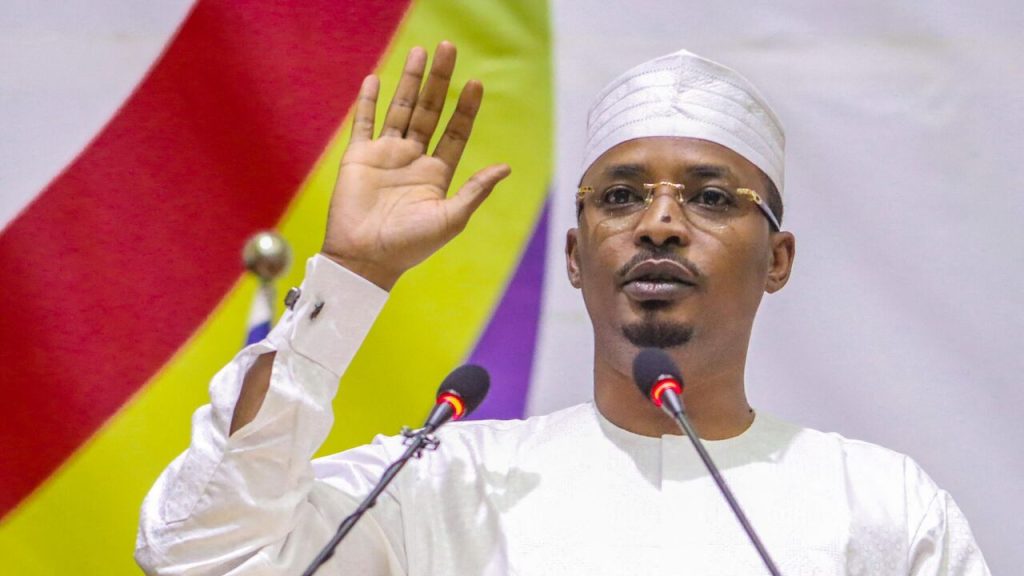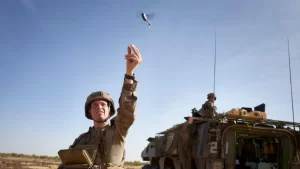Chad Leverages Global Rivalries to Enhance Diplomatic Ties
3 min read
President Mahamat Déby

President Mahamat Déby
Chad, a long-time ally of France, is skillfully navigating the geopolitical tensions between Russia and the West to bolster its own diplomatic and military relations. By forging closer ties with Moscow, Chad is exerting pressure on both Paris and Washington, signaling a strategic pivot in its foreign policy.
In January, President Mahamat Déby met with Russian President Vladimir Putin in the Kremlin, marking a significant step in their bilateral relationship. This was followed by a visit from Russia’s Foreign Minister Sergei Lavrov to Chad’s capital, N’Djamena, in June, aimed at furthering discussions and cooperation.
Chadian officials have proposed the idea of a military partnership with Russia, although the initial focus has been on enhancing cultural and media connections. A notable development was the recent inauguration of a Russian cultural center in N’Djamena, reflecting Chad’s commitment to expanding its cultural ties with Moscow.
However, challenges have arisen. Recently, Russian diplomats intervened when a “sociologist” linked to the former Wagner Group was briefly detained in Chad. Despite such setbacks, the overall trajectory of Chad’s relationship with Russia appears to be strengthening, which is causing concern for both the United States and France, the former colonial power.
The West has already observed how effectively Russia has utilized cultural and information campaigns, particularly through social media, to disseminate anti-Western narratives in several West African nations. Military regimes that have taken power in these countries since 2020 have demanded the withdrawal of Western forces while simultaneously cultivating military ties with Russia.

For France, the prospect of Chad adopting a similar stance would be especially disconcerting. The country maintains a significant military presence in N’Djamena, including a major base and smaller garrisons in the north and east. The U.S. also has a contingent of special forces in Chad, but President Déby previously requested their withdrawal prior to May’s election, reflecting rising anti-Western sentiment among younger voters in the region.
After the elections, Déby agreed to allow U.S. forces to return, underscoring the importance of maintaining military ties, particularly after setbacks in the Sahel, where France has been forced to reduce its troop presence due to rising tensions and local opposition.
The loss of influence in Mali, Burkina Faso, and Niger—where juntas have replaced Western-backed governments—has made the U.S. and France wary of further Russian encroachment into Chad. With Chad’s strategic borders with conflict-ridden Sudan, the unstable situation in Libya to the north, and ongoing turmoil in the Central African Republic (CAR) to the south, the country plays a crucial role in regional security dynamics.
In Sudan, Chad has become a vital route for arms transfers amid the civil war. Additionally, the involvement of Russian military contractors, now known as Africa Corps, in these regional crises adds another layer of complexity to Chad’s geopolitical situation.
 Chad, surrounded by regional conflicts, remains a stable partner for Western nations. President Déby recognizes this stability as a valuable bargaining chip in his dealings with Washington and Paris. Following the death of his father, former President Idriss Déby Itno, in April 2021, Mahamat Déby was quickly positioned as the head of a transitional regime. His decision to run in the May elections contravened the African Union’s guidelines, which discourage military leaders from exploiting their positions for electoral gain.
Chad, surrounded by regional conflicts, remains a stable partner for Western nations. President Déby recognizes this stability as a valuable bargaining chip in his dealings with Washington and Paris. Following the death of his father, former President Idriss Déby Itno, in April 2021, Mahamat Déby was quickly positioned as the head of a transitional regime. His decision to run in the May elections contravened the African Union’s guidelines, which discourage military leaders from exploiting their positions for electoral gain.
Despite French President Emmanuel Macron’s private lobbying for a more democratic transition, he has not publicly criticized Déby, indicating the strategic importance of maintaining the alliance. Sources in N’Djamena even alleged that the U.S. had backed Déby’s primary challenger, Succès Masra, adding tension to the relationship.
Moreover, Déby has expressed frustration over a judicial investigation in France scrutinizing potential corruption involving African elites, which has now included Chadian connections.
While these developments indicate some friction, a complete rupture in relations seems unlikely. Paris and Washington hope that Déby will view Moscow as a supplementary partner rather than a replacement for Western alliances. As Chad continues to balance its relationships in this increasingly complex geopolitical landscape, its actions will be closely monitored by both allies and rivals alike.